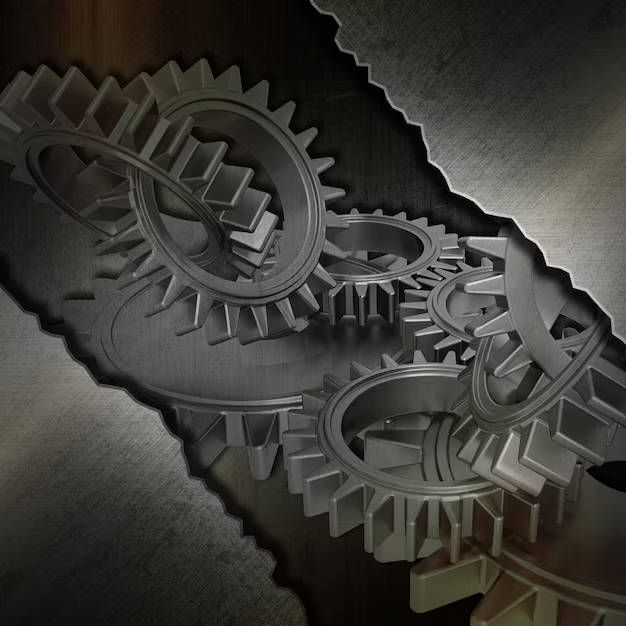When bearings are mentioned, they are usually considered a device used to achieve linear or rotational motion. In addition, they can handle pressure and reduce friction. These components are somewhat similar to wheels in that they allow equipment to roll; thereby reducing friction between the surface being rolled and the bearing itself. They make it easier for objects to move in a linear and rotational manner due to reduced friction. They also increase efficiency and speed. View other bearing models.
Bearings are primarily used to avoid direct metal contact between two elements in relative motion. This avoids friction, heat, and ultimately wear of parts. It also reduces energy consumption because low-friction rolling replaces sliding motion.In addition, they also transfer the load of the rotating element to the housing. This load can be radial, axial, or both. As mentioned earlier, bearings restrict the freedom of movement of moving parts in a specific direction. We also have bearing accessories for sale.
1. Wind Turbines
Generators provide the energy we need for our daily lives. In recent years, there has been a growing interest in using green energy that does not emit carbon dioxide, one of the gases that contribute to global warming. In particular, wind turbines have sprung up all over the world.
When such wind turbines are located at high altitudes, maintenance inspections are very difficult, so the demand for highly reliable (almost no damage) and long-life bearings is increasing.
There are many bearings used in wind turbines, and the one we will introduce here is the “main shaft bearing” that bears the wind force and transmits the rotation to the generator.

Main shaft bearing
Wind turbines use wind power to rotate the main shaft and transmit the rotation to the generator to generate electricity.
The main shaft bearing supports not only the weight of the blades and rotating parts, but also the wind force, and the wind force and wind direction change irregularly.
Therefore, we mainly use spherical roller bearings that can support large forces and have excellent self-aligning performance.
2. Rolling mill
As a representative example of a machine that manufactures raw materials for items, we will now introduce a rolling mill that rolls steel materials into the shape required for their use.
In a rolling mill, steel plates are fed into rotating rollers and force is applied to stretch them. There is an old saying that goes “strike the iron while it’s hot.” This saying is true: steel materials are usually rolled at very high temperatures. Here, the bearings bear great forces to rotate the rollers under high temperature conditions.

Work Roll Bearings
Work rolls use four-row tapered roller bearings to support the high radial loads and bidirectional axial loads generated during rolling.
Backup Roll Bearings
Work rolls are prone to bending during rolling due to the high loads, and the support rolls prevent the work rolls from bending. The support rolls use four-row cylindrical roller bearings to support the high radial loads and double-row tapered roller bearings to support the axial loads.
Bearings are used extensively on industrial machines.
Machines that generate energy, machines that manufacture materials, processing tools, etc., these products are not common in daily life.
These bearings not only support force and rotation, but also support our lives.
Bearing maintenance and lubrication are both important factors in extending bearing life. Regular use of lubricating oil or grease lubrication can minimize bearing friction and heat generation, while regular inspections can help detect general wear and bearing damage early.
NSAR serves a variety of industries, including but not limited to agricultural machinery, conveyor belts, industrial machinery, textile machinery, food processing equipment, construction machinery, HVAC systems, packaging machines, automobiles, mining and quarrying, etc. We have production strength and clean workshops, mechanized production lines, and complete after-sales systems. If you have customization requirements or brand cooperation, please contact us.
Copyright © NSAR Bearings. All rights reserved. Privacy Policy